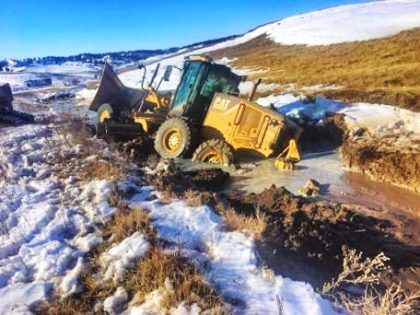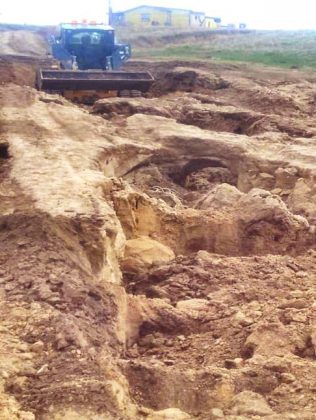This project is made possible through the partnership of WATER CHARITY, the SIOUX NATIONS, & EYES (Empowering Youth Education Services)
Due to severe flooding on many of the Sioux Nation reservations in South Dakota, many families are doing without access to clean water, which makes their already difficult situation 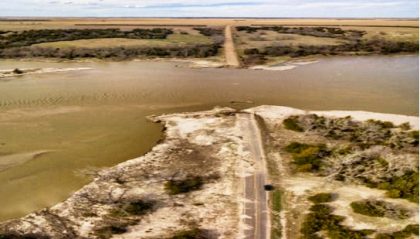 dangerously more trying. Many of those who have offered outside help, have done so in the form of trucks of plastic bottles, which is an unsustainable solution, especially considering all the individuals who lack access to transportation as many roads are flooded and are unable to access this aid. As such, Water Charity has joined forces with the E.Y.E.S. Foundation to provide immediate respite in the form of high-quality, rugged water filtration units that will be deployed to the most remote and hard-hit of the households, offering immediate relief and ongoing resilience.
dangerously more trying. Many of those who have offered outside help, have done so in the form of trucks of plastic bottles, which is an unsustainable solution, especially considering all the individuals who lack access to transportation as many roads are flooded and are unable to access this aid. As such, Water Charity has joined forces with the E.Y.E.S. Foundation to provide immediate respite in the form of high-quality, rugged water filtration units that will be deployed to the most remote and hard-hit of the households, offering immediate relief and ongoing resilience.
The following is a statement from government Rep of the Sioux Nation, and project manager on the ground in South Dakota Manape LaMere:
“Water is our first medicine. The Sioux Nation and its allies are preparing to provide reactive and proactive water solutions to tribal nations throughout South Dakota.”
Location
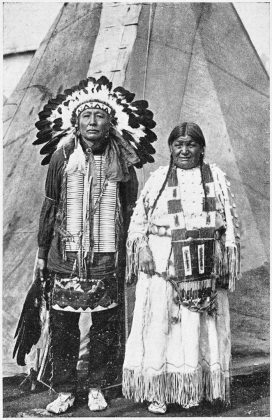 Pine Ridge and Rosebud Indian reservations. Located in the southwest and south-central South Dakota USA
Pine Ridge and Rosebud Indian reservations. Located in the southwest and south-central South Dakota USA
Community Description
Our focus will be on the reservations and communities of the Pine Ridge Indian Reservation (Oglala Lakota Nation, “Scatter Their Own” Lakota Nation), and the Rosebud Sioux Reservation (Sicangu Oyate, “Burnt-thigh Nation”). According to Steve Wilson, the Oglala Lakota Nation’s emergency management director, 1,500 tribal citizens remain displaced from their homes and 75 to 100 structures have been damaged by the flooding. 500 people remain without access to potable water, culvert systems are blocked and roads are impassable. Wilson estimates that the tribe is looking at millions of dollars of damage. The prairie reservation is roughly the size of Delaware and Rhode Island combined and is home to nearly 20,000 people, many of whom live in deteriorating houses or cramped mobile homes. About half live in poverty, and the unemployment rate hovers around 75 percent.
Problem Addressed
The Sioux Reservations were hit with a 1,2 punch of “bomb cyclones” which caused and exacerbated severe flooding for many people spread out over a wide swath of Indian Land. This has cut off a large number of residences to the aid that is available through the tribe’s call out for assistance. Many of these relatives are elders or younger adults that don’t have the resources to reach the aid provided to them. Much of these aids are hygiene products, dry goods, and water. The water is usually donated and/or purchased through a Wal-Mart or a Sam’s Club a couple hour’s drive from the reservation. The logistics of delivering heavy bags of bottled water isn’t feasible to even on horseback once the water is on-site of the distribution centers. Also, the bottled water is only causing more trash to build up at these relative’s residence. We are aiming to relieve this burden from the administrators and provide a solution to families.
Project Description
This project aims to provide immediate disaster relief for the families that are still doing without access to clean water, and ensure that these remote dwellings are able to provide water for themselves in the future, should they ever find themselves cut off from help again. To this end, Water Charity & the EYES Foundation have come together to donate 310 high-quality, portable water filtration units to the tribespeople. We will be providing sawyer filters, buckets, and instructing on the construction and use of simple water filter setups.
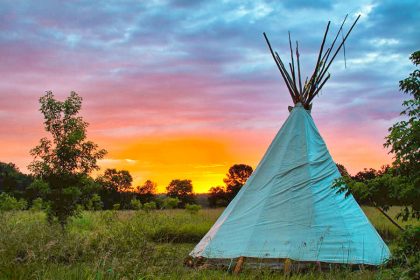
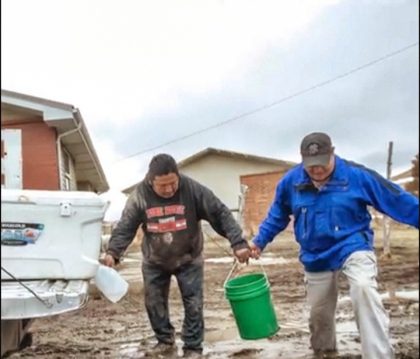
Initially, we will provide assistance to those in the most desolate of areas only being serviced by horseback and canvas as many families as possible that are cut off from washouts. We will also be reaching out to families that are cut off due to the lack of a vehicle. These counties are the poorest counties in the United States and many are elders raising grandchildren. This project aims to provide immediate relief and ongoing resilience for these communities.
Project Impact
Of the 500 hundred families that were left without potable water more than half of those families have no reasonable and efficient way to have access to safe water.
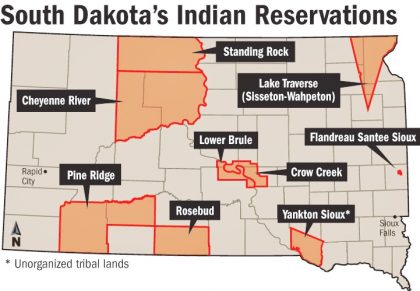
Volunteer Project Manager
Manape La Mer
Monitoring and Maintenance
Manape will be leading the distributions and education to the families that will be getting these tools.
Fundraising Target
$ 7,200
Donations Collected to Date
$0
ADOPT THIS PROJECT BY CONTRIBUTING THE DOLLAR AMOUNT OF THE PROJECT
Dollar Amount Needed
$7,200
Manape states:
“Water is our first medicine. The Sioux Nation and its allies are preparing to provide reactive and proactive water solutions to tribal nations throughout South Dakota. Two “cyclone bombs” have hit 8 reservations in South Dakota. Two of those reservations have been directly affected by the flooding.
This has cut off a large number of residences to the aid that is available in the tribes’ call out for assistance. Many of these relatives are elders or younger adults that don’t have the resources to reach the aid provided to them. Much of these aids are hygiene products, dry goods, and water.
The water is usually donated a/o purchased through Walmart or a Sam’s Club a couple hour’s drive from the reservation. The logistics of delivering heavy bags of bottled water isn’t feasible to even on horseback once the water is on-site of the distribution centers. Also, the bottled water is only causing more trash to build up at these relative’s residence. We are aiming to relieve this burden from the administrators and provide a solution to families.
A generous donation has been provided of 310 emergency water filters and resources to purchase buckets for water are much appreciated. I have been in contact with trusted individuals throughout these communities. And we are eager to help distribute these emergency filters to these communities.
There are close to 30,000 miles of driveways on the Pine Ridge and Rosebud reservations. Initially, we will provide assistance to those in the most desolate of areas only being serviced by horseback and canvas as many families as possible that are cut off from washouts. We will also be reaching out to families that are cut off due to the lack of a vehicle. These counties are the poorest counties in the United States and many are elders raising grandchildren. We will be needing assistance in gas cards for families that may need to get to distribution centers as well as my team’s own need for gas to make contact.
The Sioux Nation spans 8 states and several Canadian provinces. The Sioux Nation has been reduced to several reservations throughout those occupying states. Within South Dakota alone are 9 reservations consisting of different bands within the greater nation.
Our focus will be on the reservations and communities of the Pine Ridge Indian Reservation (Oglala Lakota Nation, Scatter Their Own Lakota Nation), and the Rosebud Sioux Reservation (Sicangu Oyate, Burnt-thigh Nation). According to Steve Wilson, the Oglala Lakota Nation’s emergency management director, 1,500 tribal citizens remain displaced from their homes and 75 to 100 structures have been damaged by the flooding. 500 people remain without access to potable water, culvert systems are blocked and roads are impassable. Wilson estimates that the tribe is looking at millions of dollars of damage. The prairie reservation is roughly the size of Delaware and Rhode Island combined and is home to nearly 20,000 people, many of whom live in deteriorating houses or cramped mobile homes. About half live in poverty, and the unemployment rate hovers around 75 percent.”
Aho Manape. We thank you for stepping up and making this project happen. We are much honored to be able to help with this situation, even in this humble way. Blessings!
